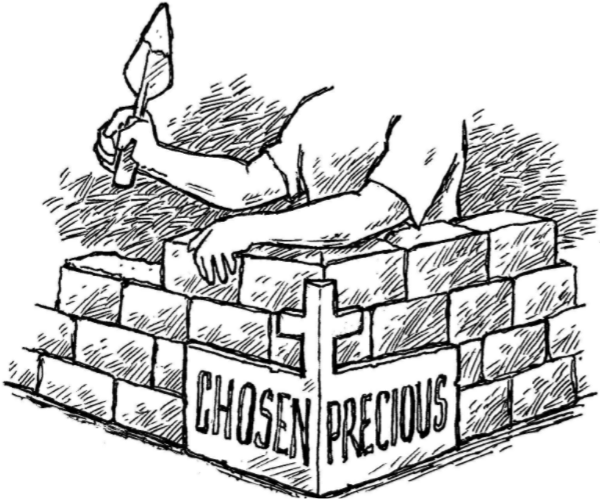Month: July 2021
-

Eighth Sunday after Pentecost (also Feast of St. James)
Readings: Genesis 9:8-17 | Ephesians 3:14-21 | Mark 6:45-56 Text: Genesis 9:8-17 When people hear about the Flood, people in our culture might picture a boat with animals sticking out windows, and several people aboard. Other cultures record the same event: The Chinese have the story of the family of Fuhi, who lived during the…
-

Seventh Sunday after Pentecost
Readings: Jeremiah 23:1–6 | Ephesians 2:11–22 | Mark 6:30–44 Text: Ephesians 2:11-22 Tick, tick, tick, tick goes the rollercoaster as it climbs its way to the sky. For a moment, there’s the feeling of exhilaration and weightlessness at the top. But you know that in just a split second, you will be hurtling down—maybe even…
-

Seventh Sunday after Pentecost
Readings: Amos 7:7-15 | Ephesians 1:3-14 | Mark 6:14-29 Text: Ephesians 1:3-14 What does God want to happen? Well, get comfortable, because this is going to take a while. In all seriousness, God’s will is not an easy topic for us to consider because it’s so much greater than we can comprehend. The Creator of…
-

Sixth Sunday after Pentecost
Readings: Exodus 24:1–11 | 2 Corinthians 12:1–10 | Mark 6:1–13 Text: Exodus 24:1-11 In his day, Jesus of Nazareth made quite a name for himself. As being the one who healed those who were sick and afflicted, and casting out demons. At the very worst there were those like in Nazareth, who didn’t receive him,…